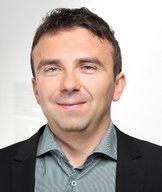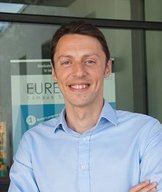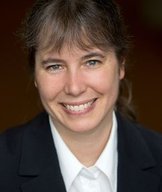Keynote Speakers
Confirmed keynote speakers at this point
Marleen de Bruijne
Marleen de Bruijne is associate professor of medical image analysis at Erasmus MC Rotterdam, The Netherlands, and at University of Copenhagen, Denmark. She received an MSc degree in physics (1997) and a PhD degree in medical imaging (2003) both from Utrecht University, The Netherlands. From 2003 to 2006 she was assistant professor and later associate professor at the IT University of Copenhagen, Denmark. Marleen has (co-)authored over 150 peer-reviewed full papers in international conferences and journals. She has been a member of the program committee of many international conferences in medical imaging and computer vision, associate editor for Image and Vision Computing and Medical Physics, and is a member of the IPMI board and of the editorial boards of Medical Image Analysis and Frontiers in ICT - Computer Image Analysis. Her research interests are model based and quantitative analysis of medical images with applications a.o. in pulmonary imaging, neuro imaging, and cardiovascular imaging.
Topic:
Deep Learning Imaging Biomarkers: Applications in Brain and Lung Imaging
Wojciech Samek
Wojciech Samek has founded and is heading the Machine Learning Group at Fraunhofer Heinrich Hertz Institute since 2014. He studied computer science at Humboldt University of Berlin, Heriot-Watt University and University of Edinburgh from 2004 to 2010 and received the Dr. rer. nat. degree with distinction (summa cum laude) from the Technical University of Berlin in 2014. In 2009 he was visiting researcher at NASA Ames Research Center, Mountain View, CA, and in 2012 and 2013 he had several short-term research stays at ATR International, Kyoto, Japan. He was awarded scholarships from the European Union's Erasmus Mundus programme, the German National Academic Foundation and the DFG Research Training Group GRK 1589/1. He is associated with the Berlin Big Data Center, is an editorial board member of Digital Signal Processing, and was organizer of various deep learning workshops. He received the best paper prize at the ICML'16 Workshop on Visualization for Deep Learning and has authored more than 80 journal and conference papers, predominantly in the areas deep learning, interpretable artificial intelligence, robust signal processing and computer vision.
Topic: Interpretable & Transparent Deep Learning
Maurizio Filippone
Maurizio Filippone received a Master's degree in Physics and a Ph.D. in Computer Science from the University of Genova, Italy, in 2004 and 2008, respectively.
In 2007, he was a Research Scholar with George Mason University, Fairfax, VA. From 2008 to 2011, he was a Research Associate with the University of Sheffield, U.K. (2008-2009), with the University of Glasgow, U.K. (2010), and with University College London, U.K (2011). From 2011 to 2015 he was a Lecturer at the University of Glasgow, U.K, and he is currently AXA Chair of Computational Statistics and Associate Professor at EURECOM, Sophia Antipolis, France.
His current research interests include the development of tractable and scalable Bayesian inference techniques for nonparametric statistical models with applications in environmental and life sciences.
Topic: Bayesian Deep Learning
Drawing meaningful conclusions on the way complex real life phenomena work and being able to predict the behavior of systems of interest requires developing accurate and highly interpretable mathematical models whose parameters need to be estimated from observations. In modern applications of data modeling, however, we are often challenged with the lack of such models, and even when these are available they are too computational demanding to be suitable for standard parameter optimization/inference. Deep learning techniques have become extremely popular to tackle such challenges in an effective way, but they do not offer satisfactory performance in applications where quantification of uncertainty is of primary interest. Bayesian Deep Learning techniques have been proposed to combine the representational power of deep learning techniques with the ability to accurately quantify uncertainty thanks to their probabilistic treatment. While attractive from a theoretical standpoint, the application of Bayesian Deep Learning techniques poses huge computational challenges that arguably hinder their wide adoption. In this talk, I will present new trends in Bayesian Deep Learning, with particular emphasis on practical and scalable inference techniques and applications.
[Slides]
Gitta Kutyniok
Gitta Kutyniok is a professor at the Department of Mathematics, Technische Universität Berlin. Her research covers the areas of applied harmonic analysis, approximation theory, compressed sensing, high-dimensional data analysis, imaging sciences, machine learning, numerical mathematics, and partial differential equations. In particular, she is interested in developing mathematical approaches for solving problems from data science such as, for instance, inverse problems in imaging science (feature extraction, inpainting, etc.) or analysis and classification of high-dimensional data. For this, she mainly exploits methodologies from the areas of applied harmonic analysis, approximation theory, compressed sensing, frame theory, and functional analysis. Possible applications include medicine such as magnetic resonance imaging and analysis of proteomics data as well as telecommunication such as massive MIMO. A different recent research focus is on novel discretization methods for partial differential equations via representation systems from applied harmonic analysis for developing fast solver.
Topic:
Deep Learning meets Modeling: Taking the Best out of Both Worlds
Inverse problems in imaging such as denoising, recovery of missing data, or the inverse scattering problem appear in numerous applications. However, due to their increasing complexity, model-based methods are often today not sufficient anymore. At the same time, we witness the tremendous success of data-based methodologies, in particular, deep neural networks for such problems. However, at the same time, pure deep learning approaches often neglect known and valuable information from the modeling world.
In this talk, we will provide an introduction to this problem complex and then focus on the inverse problem of computed tomography, where one of the key issues is the limited angle problem. For this problem, we will demonstrate the success of hybrid approaches. We will develop a solver for this severely ill-posed inverse problem by combining the model-based method of sparse regularization by shearlets with the data-driven method of deep learning. Our approach is faithful in the sense that we only learn the part which cannot be handled by model-based methods, while applying the theoretically controllable sparse regularization technique to all other parts. We further show that our algorithm significantly outperforms previous methodologies, including methods entirely based on deep learning.
Davide Roverso
Davide Roverso holds a PhD in Computing Science from Aberdeen University (UK) and currently leads the analytics team at eSmart Systems. Davide has 25 years’ experience in the field of Machine Learning and Big Data Analytics, with applications in diagnostics, prognostics, condition monitoring, and early fault detection in complex processes, in sectors ranging from energy to medicine and environmental monitoring. He has authored over 90 publications in international journals, conference proceedings and edited books.
Topic:
Deep Learning in the real world – Automating Power Grid Inspections





